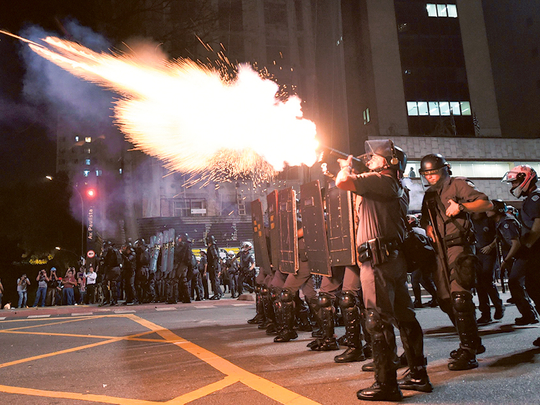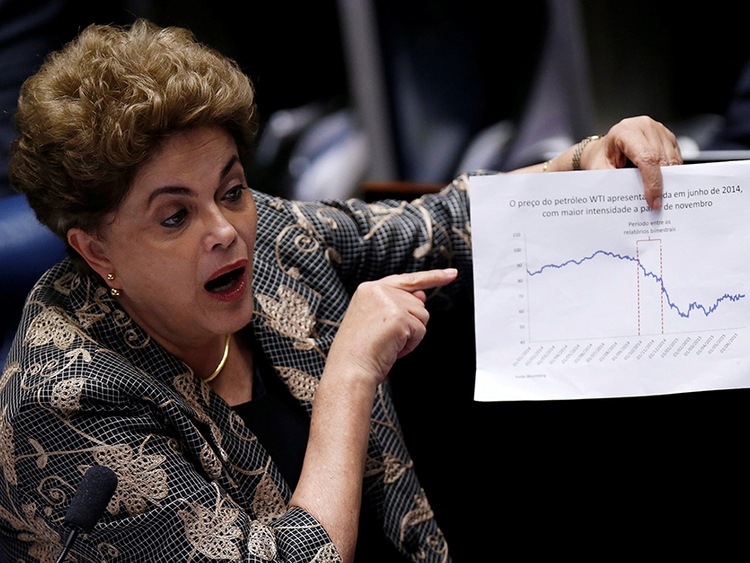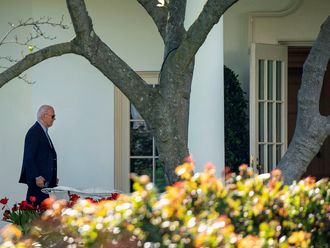
Brasilia: Brazil’s suspended president Dilma Rousseff faces judgement on Tuesday in a Senate vote expected to remove her from office despite her dramatic claim of being the victim of a coup.
The country’s first female president confronted her accusers in a marathon session Monday, telling the Senate that she is innocent and warning that the Brazilian democracy is in danger.
She is accused of having taken illegal state loans to patch budget holes in 2014, masking the country’s problems as it slid into its deepest recession in decades.
The Senate is set to hear closing arguments from lawyers for the two sides on Tuesday before holding a final debate ahead of voting — with the session possibly stretching into Wednesday. Two thirds, or 54, of the 81 senators must vote in favour of impeachment to strip Rousseff of the presidency.
Recalling how she was tortured under Brazil’s military dictatorship in the 1970s, the leftist leader urged senators during her testimony to “vote against impeachment, vote for democracy ... Do not accept a coup.”
However, momentum to push her out of office appears unstoppable, fuelled by deep anger over Brazil’s devastating recession, months of political paralysis and a vast corruption scandal centred on the state oil giant Petrobras.
Folha, one of Brazil’s main newspapers, published a running count of senators’ voting intentions and had 52 declaring themselves pro-impeachment by late Monday, with 11 undecided.
Rousseff would be replaced by her vice president turned bitter enemy Michel Temer. He said he was watching the process with “complete calm.”
If Rousseff is expelled, he plans to fly to China for a G20 summit as soon as he is sworn in.
Despite her strong words in the Senate, public reaction to Rousseff’s impeachment trial has been characterised by widespread indifference, as Brazilians struggle with rising inflation and unemployment.
Some 2,000 flag-waving supporters rallied to support her near the Senate building in the capital Brasilia — a fraction of the crowds her Workers’ Party has drawn in the past.
Protesters also gathered in Rio de Janeiro and Sao Paulo, where they lit fires and riot police fired tear gas to disperse them.
The Workers’ Party under Rousseff and her predecessor Luiz Inacio Lula da Silva is credited with raising around 29 million Brazilians out of poverty. But they have turned on their rulers, blaming them for the country’s multiple ills, accusing Rousseff of mismanagement in particular.
Temer, of the centre-right PMDB party, has already served as acting president since May, using his brief period in power to steer the government rightward.
Although that has earned plaudits from investors, it remains uncertain whether he will have voters’ support to push through the painful austerity reforms he promises.
Rousseff has barely double digit approval ratings. But Temer is hardly more popular, according to opinion polls.
Unlike many high-profile politicians, Rousseff has not been accused of trying to enrich herself through embezzlement or bribes. There is also lingering sympathy for her suffering under the dictatorship.
Although she spoke mostly in a measured tone on Monday, her voice cracked and she appeared close to tears while recalling her suffering as a young leftist guerrilla and during a battle with cancer.
“Twice I have seen the face of death close up,” she said. “When I was tortured for days on end, subjected to abuses that make us doubt humanity and the meaning of life itself, and when a serious and extremely painful illness could have cut short my life.”
“Today I fear only for the death of democracy, for which many of us here in this chamber fought.”













